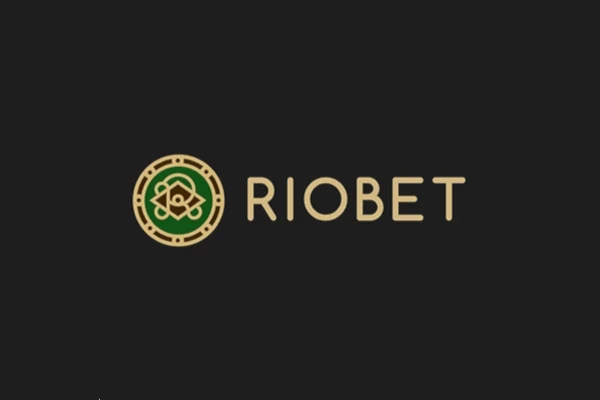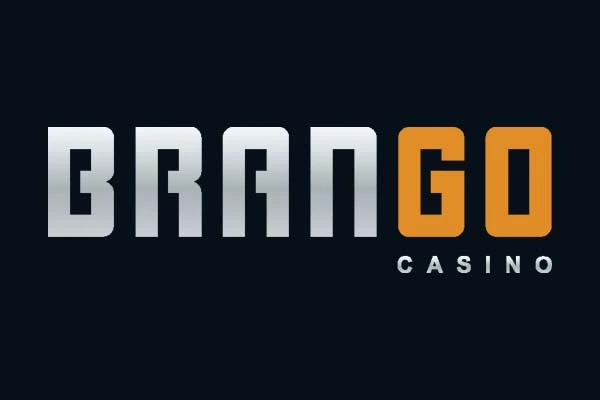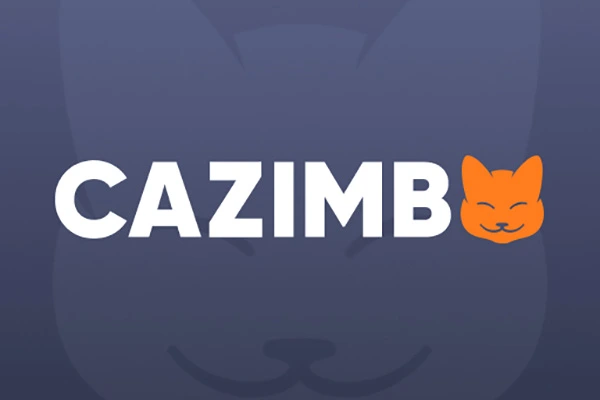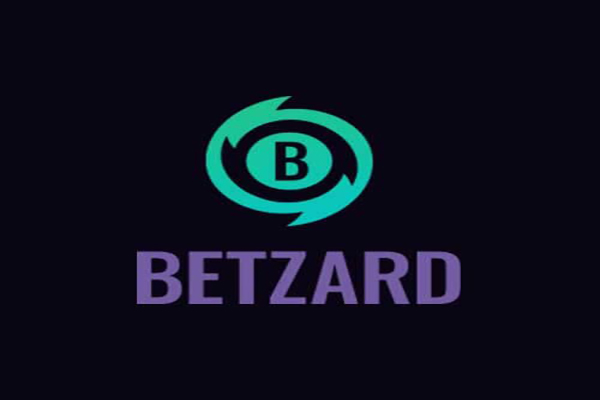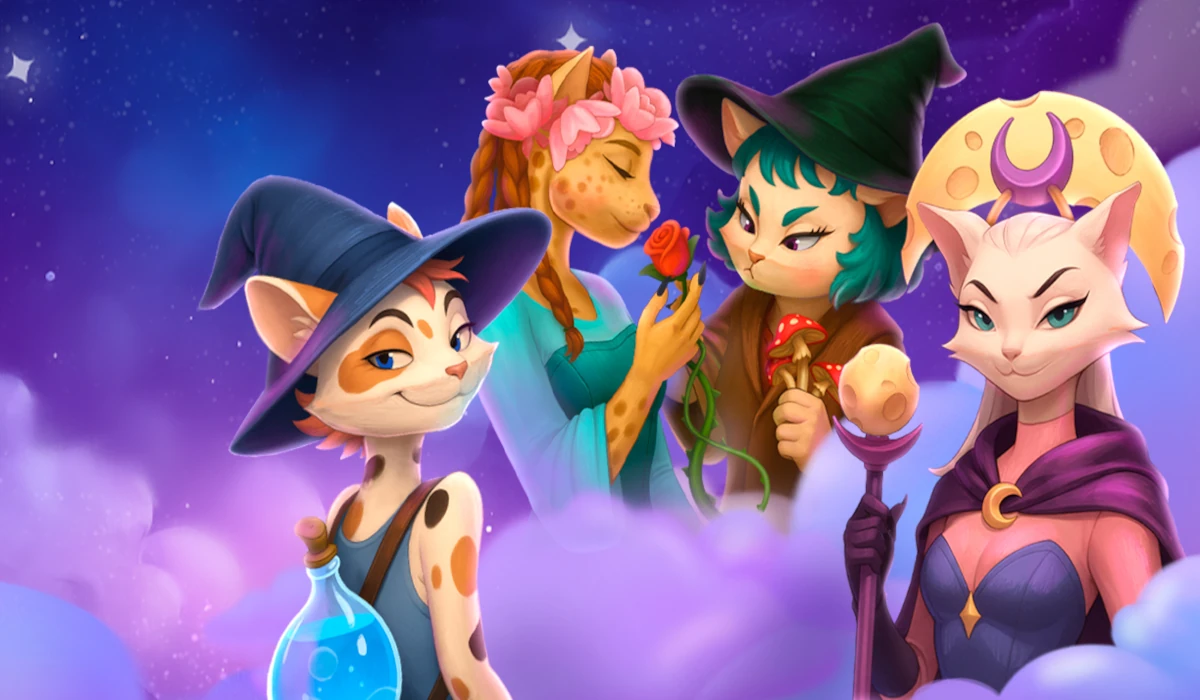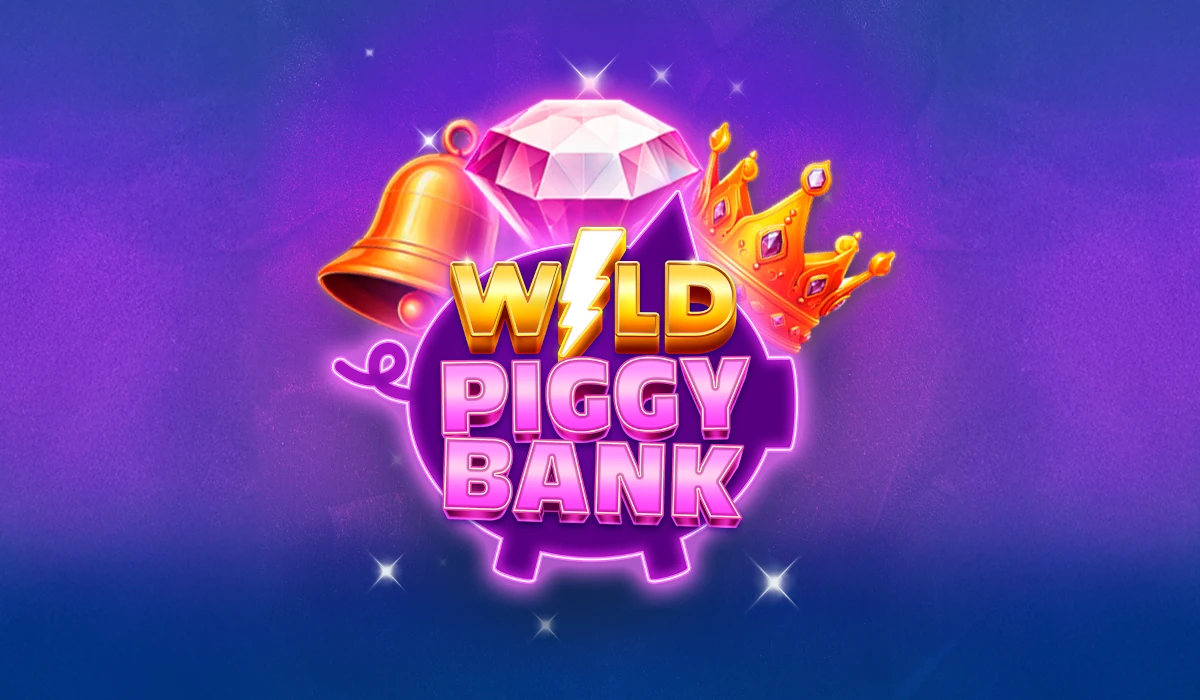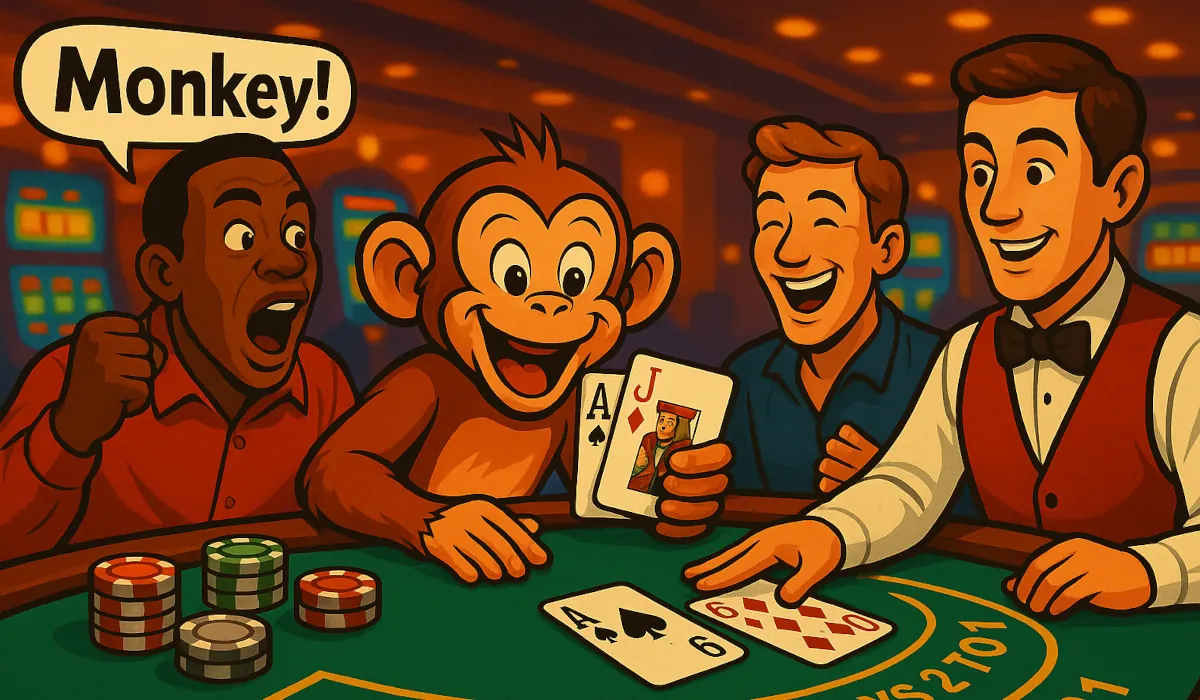
What Does Monkey Mean in Blackjack? | Slang Explained
🗝️ Key Takeaways
- Understanding "monkey" as blackjack slang for ten-value cards—including tens, jacks, queens, and kings—is crucial for effective communication and gameplay strategy at the table.
- Identifying "monkey" cards increases players' knowledge of the game. This understanding informs their strategic choices to bet, hit, double, or split, leading to more robust winning potential.
- The word "monkey" is inherently mischievous, a bit like our cultural evolution. It creates a common language and sense of community that impacts players across the world, making everyone's gaming experience much better.
- Strategic knowledge of "monkey" card allocation provides a distinct advantage. When you add this to the considerations of basic strategy and card counting, you'll make smarter decisions in a multitude of situations.
- Emotional and psychological elements play a major role in decision-making and table dynamics. As an example, superstition and player hype when asking for a "monkey" underlines emotional control to the Max!
- Knowing how "monkey" is used outside of blackjack opens up a player's vocabulary. It deepens their understanding of gaming communities across the globe, from other casino games to pop culture.
Monkey blackjack puts a new spin on the traditional blackjack game! In this variant, players shout "monkey" in order to request a face card or a ten when they want to draw a high card.
In English language blackjack slang, players would sometimes ask for a "monkey" in many card rooms. Ideally, they want to draw a jack, queen, king, or ten in that next hand!
The slang originated from the Asian gambling community, and the expression quickly traveled to tables across the globe.
Monkey blackjack has the same rules as regular blackjack. The slang adds another layer of fun and sociability to the mix! This argot transforms the atmosphere and play in intriguing directions.
The second half explores its past, present, and future in gaming.
🐒 What "Monkey" Means in Blackjack
In Blackjack, the term "monkey" is more than just fun dealer slang. It represents a powerful group of cards and sets the tone for how players and dealers will engage with one another at the table.
The term actually means any ten-value card, so 10s, Jacks, Queens, and Kings. Understanding what "monkey" means and why it's important gives players the ability to read the table and make the right moves.
1. Card Definition
In Blackjack, the term "Monkey" refers to any ten-value card, including face cards like Jacks, Queens, Kings, and the 10 card itself. Many players believe that only the face cards count, but all four are indeed considered "monkeys."
These cards play a crucial role in the game, as they can significantly increase a hand's total, pushing the player closer to 21 or potentially helping to beat an opponent's hand. Understanding the importance of these ten-value cards can enhance your blackjack strategy, especially when deciding on a regular blackjack wager.
Tracking "monkey" cards can greatly influence betting decisions. By keeping an eye on which ten-value cards are still in play, players can better evaluate their odds and determine the right moment to make a strategic move, such as hitting or staying.
This skill is particularly valuable in Asian casinos, where the game is played with multiple decks and specific rules that can affect outcomes. The origins of the term "Monkey" can be traced back to similar words in Indonesian or Chinese dialects.
Initially, it referred to face cards but has evolved to resonate more with American players. As you delve into the blackjack game, understanding the gambling vocabulary surrounding these terms can elevate your overall experience and improve your possibilities of winning.
2. Player's Call
Players call for a "monkey" when they want a ten-value card, usually in dramatic fashion during nailbiting hands. Though you hear this shout most often in Asian casinos, the excitement carries over across the globe.
Hope and suspense hang in the air at this critical moment. It's often an indication of a desperate desire for a miraculous card to appear.
It can be a reflection of a last-resort call when the stakes are raised. Players can further employ it jokingly (if the game is going as planned) or in anger (if the game is not going well).
- "Give me a monkey!"
- "Monkey for the win!"
- "No monkey, please!"
- "Dealer, show the monkey!"
- "Monkey bust!"
Smartly calling for a "monkey" gives an indication of what cards are remaining in play. This power play can go as far as influencing opponents' bets, bringing a social dimension to the game.
3. Dealer's Context
When dealers hear the word "monkey," they understand that the players are asking for a ten-value card to appear on the table. The call affects how the dealer sets the mood, often resulting in an inside joke or playful exchange between everyone.
It's often elicited by a dealer who will nod, joke, and play along, helping to further build rapport and maintain an energetic vibe. An engaged dealer response goes a long way to making the entire table feel more connected, particularly in fast-paced games like Blackjack, where each and every card matters.
4. Ten-Value Impact
Big role. Ten-value cards often decide games. They tip odds, setting up wins or busts.
Natural Blackjack—a starting hand of Ace and one of the "monkeys"—pays out the best. Smart players who are aware of when "monkeys" are coming can make better bets or play in a more aggressive manner.
📜 Origin of "Monkey" Slang
The use of monkey, as in blackjack and other table games, has expanded to become an important part of casino slang. Yet its path began in one culture, grew quickly, taken up by actors in the Global South and other regions.
The word, indeed, has quite whimsical origins. Fast forward to today, and it lies at the epicenter of card gaming vernacular, representing just one example of how language can define and polarize the experience at tabletop.
🌱 Linguistic Roots
The ethnoracial slur "monkey" was birthed at baccarat tables. Players would call the word aloud and try to pull a "10" or face card. As anyone who has gambled in American or Asian-themed casinos knows, players like to shout "mo-yair!
This Cantonese term suggests "no card" or "no substance," signaling the dealer will not be receiving a good card. As you can imagine, over time the game, and the subsequent fandom that came with it, grew.
In American casinos, "mo-yair" changed into "monkey" because that new word rolled off the tongue a lot easier. The fun aspect of "monkey" won out as it just goes along better with the playful vibe surrounding the tables.
Requesting a "monkey" sounds much less formal than going in with the proper technical names of the cards. It's unknown what it is, but it immediately energizes the entire room!
The term's chameleonic nature, willingness to bend, adapt, and mold to the everyday vernacular is what made it so infectious and far-reaching. In gaming, a systemically insular culture, slang escalates rapidly, resulting in the language of the casino being the most vibrant arena of this linguistic battlefield.
🎲 Casino Folklore
Tales from the casino floor illustrate the effectiveness of "monkey" in alchemizing an unpleasant exchange into a jubilant outcome. When players scream "monkey" it's essentially a signal of their hope for a face card, which might turn the game in their favor.
These fleeting instances of luck and timing become the stuff of casino folklore, recounted as short stories by the casino old-timers to the newbies. Superstitions are further spawned by this practice as well. Some even think that by yelling "monkey!" it will cause the correct card to come out.
While luck may be the only real factor in winning, these rituals help restore a feeling of power to players. Second, they create camaraderie – nothing brings a table together like simultaneous shouting.
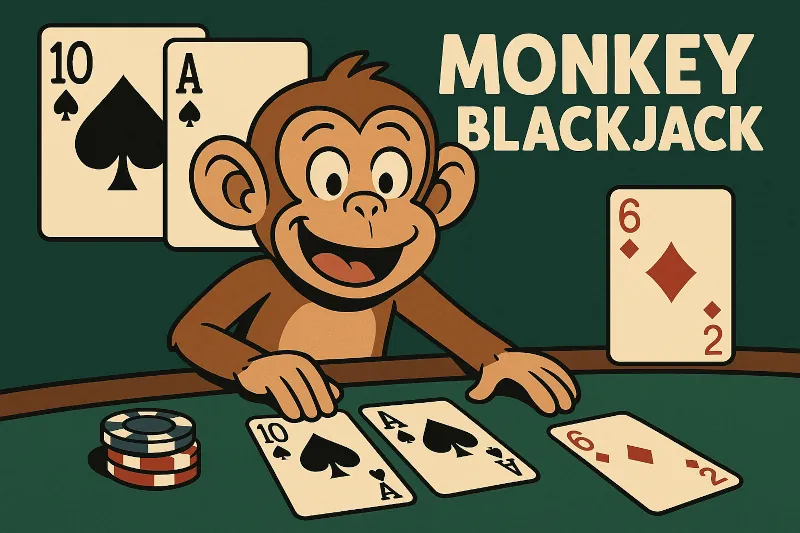
🌍 Cultural Spread
Monkey can now be heard in casinos from Macau to Las Vegas. Asian communities have largely used it as an insult first.
Due to international travel and online gaming, the term quickly crossed geographical lines. In online games, gamers continue the legacy—players literally type "monkey" into chat boxes on online platforms.
This organic exchange of slang is a great example of how gaming can cut across cultures and connect people. Slurs, epithets, and derogatory terms like "monkey" fold, bend, and mutate under the wear of usage.
The desire behind the word has not changed—to wish someone luck, give a child a fun experience, or share smiles and laughter together.
✨ "Monkey" Impact on Decisions
In blackjack, "Monkey" cards—usually any card valued at 10 points, such as 10, Jack, Queen, or King—are of extreme importance and power. The possibility of being dealt a "monkey" influences players' overall strategies for playing each round, especially in the main blackjack game.
Understanding the probability of hitting a draw has entered the realm of higher-level play, particularly when the buy-in is significant. Players often implement blackjack strategies that revolve around maximizing their chances of achieving a natural blackjack while minimizing the house edge.
In behavioral and cognitive neuroscience, researchers use monkeys to make groundbreaking discoveries. Their brain areas, like the anterior cingulate cortex (ACC), help inform risky decisions by calibrating risks, rewards, and the true value of a decision.
This mirrors how players engage in the blackjack game—combining the desire for a "monkey" with intelligent, calculated risks in pursuit of winning hands.
Psychological Factors Affecting Decisions:
- Expectation for immediate gratification (victory with a "monkey").
- Loss aversion and fear of busting.
- Clash of reason and temperament.
- Hope or despair based on previous victories or defeats.
- Incentive based on expected likelihood.
- Stress or fatigue altering risk tolerance.
🎯 Hitting Choices
Blackjack players often hit with the hope of drawing a "monkey" to increase their hand value. This optimism can be blinding, leading some to miscalculate their chances of success.
Research on monkeys shows their brain, especially the ACC, monitors conflict and errors—just like players weighing the risk of busting versus the reward of a strong hand.
One big novice player mistake is to chase after "monkey" cards without considering what the dealer has showing. For instance, hitting on a hard 16 against a dealer's 7 usually ends up in a bust. Still, the rewards are great enough that some players continue to push their luck!
The correct decision here is to look at your cards and the dealer's cards before deciding to hit or stay.
💥 Doubling Down
The improbability of pulling a "monkey" is what makes doubling down so seductive. Players may double their bet when there's a high chance of landing a 10 or face card, making a strong hand.
The ACC in monkeys is responsible for cheating expected value, which is reflected by this strategy in blackjack.
- When you are given an 11, doubling down makes sense because drawing a "monkey" makes you 21.
- With a weak 16 to 18, doubling against a dealer's weak upcard provides tremendous upside potential if a "monkey" hits.
- When the deck is loaded with 10s, don't ignore it! When a bunch of low cards have been pulled, doubling on 9 or 10 becomes very profitable.
Imagine, for example, that your 10 needs to be doubled against a dealer's 9 because lots of "monkeys" are left. The cost of doubling is worth it given the anticipated benefit—the same way in monkey experiments, where reward value determines choices.
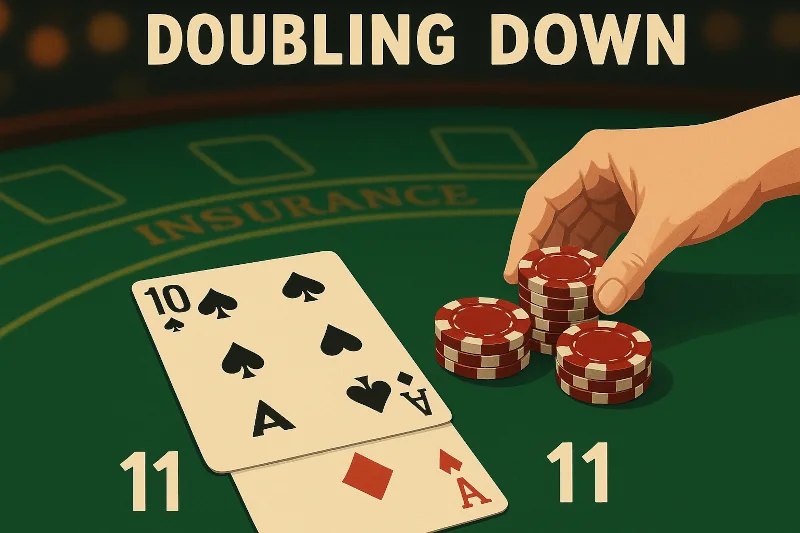
✂️ Splitting Pairs
By splitting pairs, like 8s or Aces, you get two opportunities to draw a "monkey" for each new hand. This play is most effective when the dealer is showing a junk card.
The advantage is in creating two separate hands each of which can be improved to a winning hand with just a single high card. Not considering the dealer's upcard is a big mistake.
While splitting 10s against a dealer 5 is a strong play, splitting the same 10s against a dealer Ace is the polar opposite. Too many players split just to go after the "monkey," and often find themselves with a bad hand.
🛡️ Insurance Bets
In blackjack, insurance bets are intended to protect against the dealer having blackjack, particularly when the dealer shows an Ace. The temptation is great if the hand appears flush with "monkeys."
If you look at the research and the numbers, you'll find that insurance is a very poor long-term bet.
Insurance, most experts agree, is a bad bet—except, it's a good bet for card counters who can be sure that lots of "monkeys" remain. For the rest, the odds are stacked against insuring despite the gut feeling that it might be a good bet.
🧠 Strategic "Monkey" Awareness
In blackjack and other card games, the monkey is slang for any ten-valued card. This goes for our tens, jacks, queens, and kings too.
Strategic “monkey” awareness of these cards is essential, as they can all dramatically impact pot flow, player action, aggression, and bet sizing.
Players who understand how “monkey” cards affect the overall deck will be able to make more informed decisions. They can change their margin of wagering, better manage risk, and, yes, even learn strategy from casino games like baccarat.
📘 Basic Strategy
Recognizing strategic “monkey” cards at a glance helps establish a strong base for determining whether to hit, stand, or double down. Just being aware that there are more tens left in the deck can change the odds.
Participants need to adhere to a readily available strategy chart, which highlights the optimal move for each and every hand.
Simple enough to use, these charts, relied on by top pros, are based on math and the presumed rate of strategic “Monkey” cards remaining in play. Beginners can start by tracking face cards as they leave the table to get a feel for the deck’s makeup.
Understanding this current allows all of the actors to place smarter bets. It saves them from the guesswork that often plagues newbies to the table.
🃏 Card Counting
Card counting systems, such as Hi-Lo, work on the principle of keeping an eye on “monkeys” to identify when the deck is favoring high cards. This provides the player with a super unfair advantage!
The more remaining tens there are, the more chance they have of receiving a blackjack or the dealer busting.
Understanding the count allows players to increase their bets when the odds are in their favor. Card counting is not actually illegal in most jurisdictions. Most casinos don’t like it and will tell counters to walk out.
Betting systems such as Martingale or D’Alembert can help players to manage swings, but they don’t ensure players come out on top. Blending these systems with high-level monkey awareness can reduce the danger and create a foundation for consistent profits.
🎭 Dealer Tells
Reading the dealer is an art and a bit of practice. Advanced dealers can display subtle indicators when a “monkey” is about to drop.
You will be able to pick up on their change of pace, cadence when laying down cards, or imperceptible shifts in their nonverbal cues.
An exceptionally calm table would help you avoid these, but an overwhelming, chaotic one would mask them. Noticing these tells, or even spotting when a dealer seems tense or rushed, might point to a big card coming up, but these signs are far from foolproof.
🤯 The Psychology of Calling "Monkey"
Calling for a "monkey" card in blackjack is an argument based on tradition and psychology. It's a term full of promise, most meaningfully described when young gamblers might call out "hit me" while waiting for an ace or 10 to make their twenty-one.
There's a lot more to this phenomenon than a catchy-sounding catchphrase! It is a powerful flare for deep psychological motives, table dynamics, and cultural history, attracting both good and bad outcomes.
🍀 Superstition
Superstition is a powerful force at any blackjack table. Players often call for a "monkey" during a game as part of a ritual. They think that by calling the word over and over, they will improve their chances of getting a face card.
This perception is usually based on anecdotal experience and other players' narratives. Beyond that, it can be rooted in the wish to feel a sense of agency in a situation defined by randomness.
For many, the ritual becomes a routine. Before they draw a card, they knock on the table or say the word quietly to themselves. Because superstitions are personal, they can function to increase a player's confidence, making the player feel more in control of the outcome.
These beliefs can sometimes create a dangerous overconfidence that seeps into strategic decision-making. Some common personal superstitions are always sitting in the same seat.
Players will no longer play if the last hand is lost after calling monkey or they use the word as a talisman.
🎉 Player Excitement
The psychology behind calling for a "monkey": A simple card draw can turn into one of the most suspenseful, thrilling moments in the entire game. This suspense is an essential component of what makes blackjack exciting, as the players root for a particular result together.
The urgency of the moment can result in split-second decisions, often resulting in riskier bets or a shift in playstyle.
| Emotional Response | Impact on Decision-Making |
| Joy | Increased willingness to bet |
| Disappointment | Hesitation or reduced risk |
| Frustration | Impulsive actions |
| Anticipation | Focused attention |
Having players excited at times can add a lot of energy to the table, making it more conducive to socializing and raising everyone's spirits. That same energy is what can lead players to make decisions they'll come to deeply regret.
They could go on tilt and chase losses or even lose sight of basic strategy.
🔥 Table Atmosphere
The collective demand for a "monkey" creates the social atmosphere of blackjack, especially in the main blackjack game. When multiple players use the same line, it fosters a sense of solidarity, which is crucial for new players.
This relationship helps break the ice between strangers, enhancing the overall experience of the blackjack game.
Some friendly table banter, like cracking jokes about calling "monkey" cards, keeps things fun. It creates a pleasant atmosphere for everyone sitting around the table.
An open and positive atmosphere empowers players to maintain their composure in high-pressure moments. This gets them to make better decisions and have a much more enjoyable game.
🌐 "Monkey" Beyond the Blackjack Table
The term "monkey" has a special place in the world of casino gaming, far surpassing blackjack. It is more than a word, it is an indication of goodwill between gamblers and the mixing of traditions between games.
The table below shows how "monkey" appears in different contexts:
| Game | Usage of "Monkey" | Meaning |
| Blackjack | Player calls for a "monkey" | Hopes for a face card (value 10) |
| Baccarat | Dealer or player says "monkey" | Wants a face card |
| Poker | Rare, sometimes refers to a bluff or big bet | Not a standard term |
| Rummy | Not common | N/A |
Casino slang frequently spills into everyday language and popular culture, but none more so than blackjack's rich vernacular. Players in casinos don't shy away from saying "monkey" to encourage, taunt, or otherwise send luck.
As it evolves, it becomes an inside joke or shorthand, aiding in creating that in-group mentality. In gambler's slang, that means, "Show me a monkey!"
Whether trying to break the tension or wishing for a better hand, they all use this phrase.
Beyond its use at card tables, the term enters other games, often with a different connotation. In other contexts, such as street dice games, "monkey" as a name for a big roll can refer to an aggressive move or wager.
The proliferation of this sort of slang is a perfect example of "monkey see, monkey do." Players are quick to rip off ideas that work, spreading them from game to game with slight adjustments.
🎮 Other Games
In poker, the use of the word "monkey" is less prevalent. It does show up occasionally when a player all-ins or makes an all-or-nothing move, suggesting the wit and daring of the creature it represents.
In rummy, local communities have sometimes repurposed the word to name wild cards or fortunate draws. Yet this is the exception, not the rule.
How "monkey" changes in fast-paced games creates a need for short but impactful signals as well as terms that can be learned and recalled quickly. The interpretation is nuanced, depending on the game's specific rules and the culture around the table.
Yet the term packs a cheeky bite, often associated with serendipity—similar to cultures where monkeys symbolize prosperity or intelligence.
Players leverage the term to build camaraderie or diffuse high-pressure situations. It fits so well into the diverse lexicon of card games. Even when the jargon shifts a little from game to game, the feeling of fun and chance is still there.
🌟 Popular Culture
Movies and television have normalized the cliche of gamblers screaming for a "monkey" when the action gets intense. This sensationalistic depiction renders the term recognizable, even to non-players.
These scenes are one way that the lingo manages to seep into popular culture, informing collective perceptions of both blackjack and its idioms. In literature, authors have employed "monkey" to evoke a character's aspiration, fortune, or audacity.
They are based on the animal's centrality in so many creation myths and legends.
Cultural representations have linked the term to improvisation, social intelligence, and even serendipity. This double entendre speaks to the majestic animal and the gambling player's spirit.
This affects the way the general public views casino games. It turns basic street lingo into an evocative symbol of danger, benefit, and collective enthusiasm.
🔗 Integration in Everyday Talk
Usually, a short hurrah in the context of a blackjack game indicates optimism or playfulness, which is familiar to children and adults alike, connecting gnomes wherever they are on the globe.
🔒 Conclusion
The reason is that players at the table yell "monkey" when they want a face card. This term illustrates the way casual banter influences the atmosphere and pace of an informal game of blackjack.
On the casino floor, dealers and players alike use monkey to ease tension, to express a little optimism, or inject some goofy humor into the situation. The term originated in Asia and spread quickly to casinos around the globe.
Today, it's not just a colorful term, but it's evolved into the fabric of the game's nomenclature — along with chips and cards. Understanding these little nuggets can guide you on how to interpret the table and read the document quickly.
While cards and numbers are important, so too are the words you're listening to. If you want to develop as a player, you must learn to identify these red flags.
They let us in on important secrets about the game and the players at the table!
Frequently Asked Questions❓
What does "monkey" mean in blackjack?
In blackjack, the term "monkey" refers to any 10-value card, including jacks, queens, and kings. Players often hope for a "monkey" to enhance their blackjack game and improve their chances of achieving a winning card hand.
Where did the blackjack term "monkey" come from?
The monkey blackjack term derivation likely comes from Asian casinos, particularly from the region of Macau. In some Asian languages, face cards, such as the jack, queen, and king, are referred to as 'monkeys,' and the term has caught on worldwide.
How does calling for a "monkey" impact blackjack decisions?
Calling for a 'monkey' doesn't affect the blackjack game's results. It's not meant to be taken literally at all. Though it won't physically change the action taken at the table, it can expose a player's intent or feelings to the card game.
Is knowing the "monkey" slang helpful for beginners?
Understanding the 'monkey' slang in blackjack can significantly decrease confusion when you play the blackjack game.
Does the "monkey" card actually increase your chances of winning?
No, playing the monkey card doesn't improve your chances of winning in the blackjack game. It's nothing more than a prayer for a ten-value card, which by sheer statistical prevalence will show up frequently but is out of players' control.
Why do players shout "monkey" in blackjack?
Players often shout 'monkey' during the blackjack game to hope for a ten-value card, adding excitement and energy to the overall value of the action.
Is "monkey" used in other casino games?
Yes, 'monkey' is a standard gambling vocabulary used in blackjack games or other card games; its meaning hasn't changed much—to wish for a good result.






















